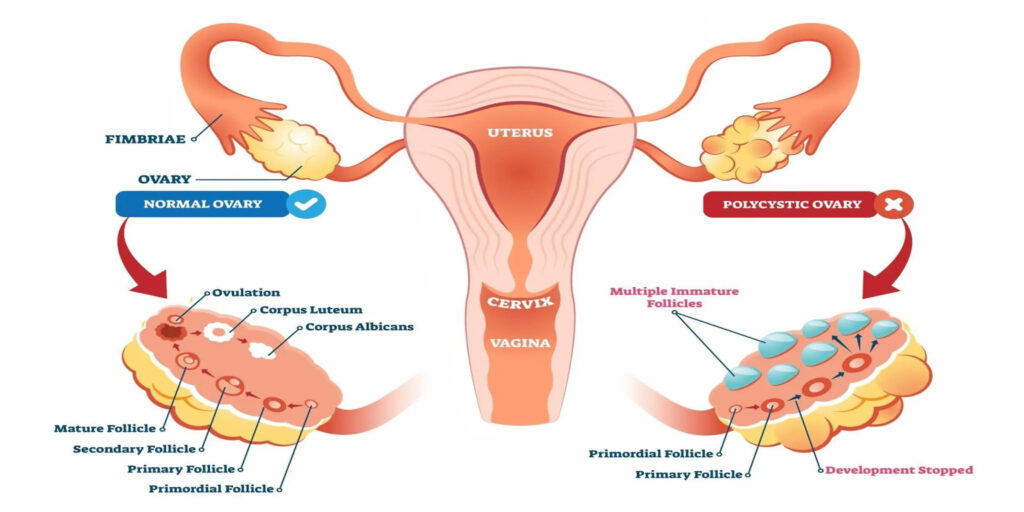PCOD, or Polycystic Ovarian Disease, is a condition in which a woman’s ovaries contain multiple small cysts or follicles that fail to mature and release eggs. This can lead to hormonal imbalances and a range of symptoms, similar to those seen in PCOS (Polycystic Ovary Syndrome).
Some of the common symptoms associated with PCOD include:
- Irregular periods: Women with PCOD may experience irregular menstrual cycles, heavy bleeding or absence of periods.
- Excess hair growth: Women with PCOD may experience excess hair growth on their face, chest, or back, as well as male-pattern baldness.
- Acne and oily skin: PCOD can lead to an increase in acne and oily skin due to higher levels of androgens, or male hormones.
- Weight gain: Women with PCOD may have difficulty losing weight or may gain weight more easily, which can lead to other health problems such as high blood pressure and heart disease.
- Infertility: PCOD can make it more difficult for women to conceive due to irregular ovulation or lack of ovulation.
The exact cause of PCOD is unknown, but it is believed to be related to hormonal imbalances, specifically higher levels of androgens, insulin resistance and genetics.
Treatment for PCOD is similar to that for PCOS and may include lifestyle changes, medications, fertility treatments or surgery. It is important to manage PCOD and its associated health problems to prevent long-term complications. It is recommended to consult with a healthcare professional to determine the best treatment plan for PCOD.

